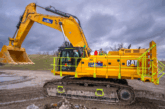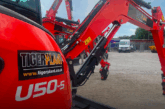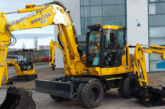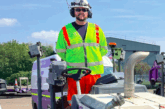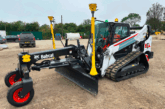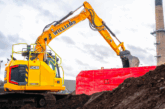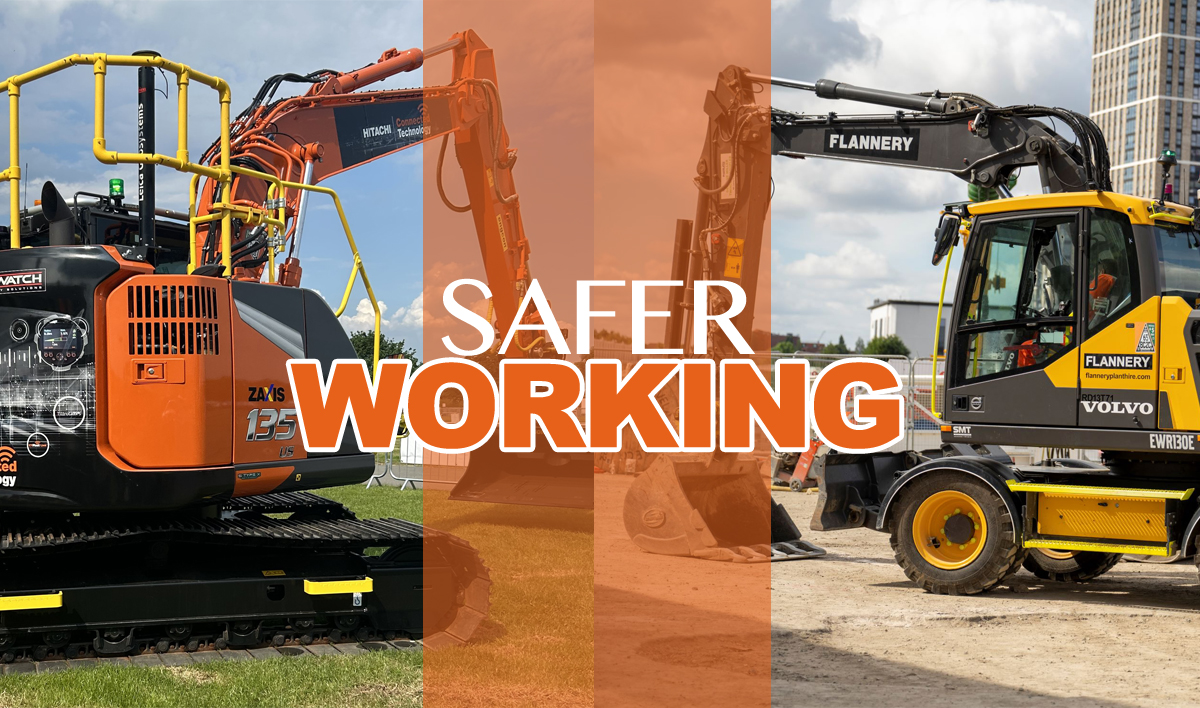
Plant hire companies are championing 3D avoidance for greater construction safety. CPN hears from two companies who are making it happen.
In the ever-evolving landscape of British construction, Plantforce Rentals has emerged as the latest company to embrace the cutting-edge technology offered by Leica Geosystems (part of Hexagon) and Xwatch Safety Solutions 3D avoidance zone solution. With its new Kobelco SK130 already receiving the upgrade, it’s evident that the winds of change are indeed blowing.
Plantforce digital lead, Matt Milkins, remarked that this is nothing short of “breakthrough technology”. Echoing this sentiment, Neil Patton, business development manager at Plantforce Rentals North West, called it a “fantastic system”.
While Plantforce is the latest to come on board, Lynch Plant Hire has not been far behind. It has already given the nod to the 3D system, having four units upgraded last month with more on order.
Previously, it was Flannery Plant Hire that blazed the trail, pioneering the system earlier this year, having completed testing in ‘real world’ applications onsite with tier one contractor Kier Group over a number of months.
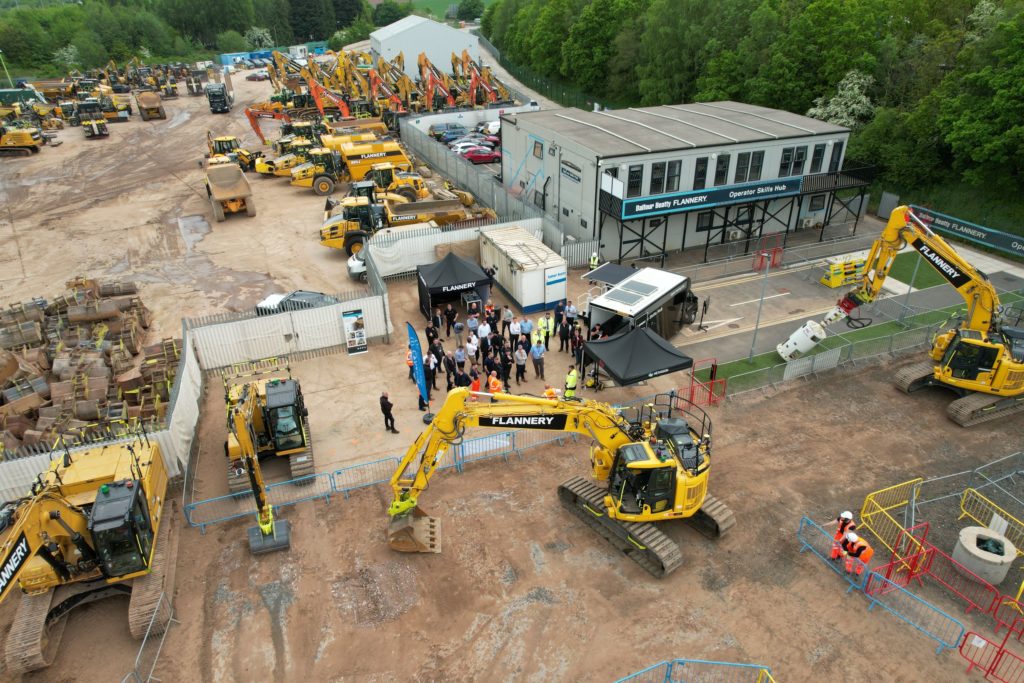 “We at Xwatch are genuinely delighted with how swiftly and positively the industry has embraced this groundbreaking technology. Our gratitude goes out to Flannery and Kier for their invaluable support and collaboration in trialling this product. By connecting an XW5, a height slew and RCI (rated capacity indicator) system, to the Leica MC1 machine control software, we’ve integrated a virtual wall which offers height, slew, and depth control, facilitating the recognition of cables and utilities. This enables the operator to proficiently navigate around the avoidance zones on any construction site,” explains Xwatch sales and operations director, Dan Leaney.
“We at Xwatch are genuinely delighted with how swiftly and positively the industry has embraced this groundbreaking technology. Our gratitude goes out to Flannery and Kier for their invaluable support and collaboration in trialling this product. By connecting an XW5, a height slew and RCI (rated capacity indicator) system, to the Leica MC1 machine control software, we’ve integrated a virtual wall which offers height, slew, and depth control, facilitating the recognition of cables and utilities. This enables the operator to proficiently navigate around the avoidance zones on any construction site,” explains Xwatch sales and operations director, Dan Leaney.
“This breakthrough, from our alliance with Leica Geosystems and our own endeavours at Xwatch, has transformed the excavator safety market. Beyond safety enhancements, we’ve seen significant strides in site productivity and control. This system bridges the gap between safety and machine control for excavators.
Chris Matthew, head of business strategy, Flannery added:” Having created avoidance zones and put the technology through its paces, it’s clear that it will enhance our safe operation onsite and support our operator community. This will, in-turn, allow operators to concentrate on the work they are tasked with completing.
“Because it’s integrated into the Leica MC1 tablet, which is already in the machine, we don’t have to add another screen into the operator station. And as we already train our operators on how to use the Leica Geosystems machine control, they are already familiar with the system, so this is just an add-on that is already proving to be very popular.
“The feedback that I’ve had from the operators is that they feel like they have an extra safeguard in the cab that enables them to see things they wouldn’t have otherwise seen, like underground utilities. And this gives them the confidence to continue work, which is really important.”
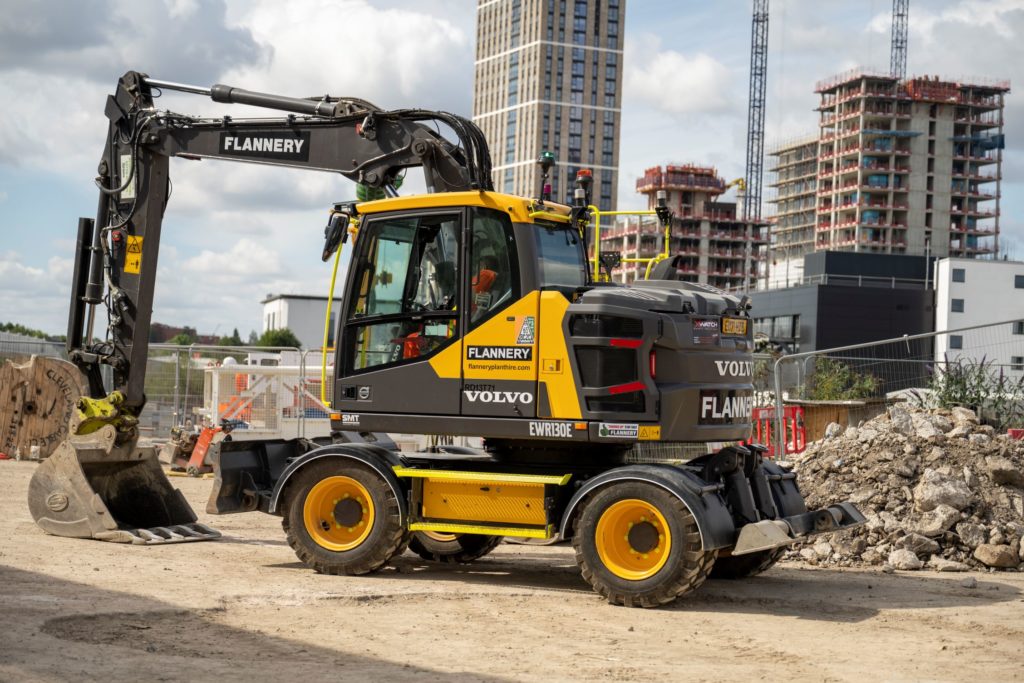
Unseen hazards
Historically, the construction industry has grappled with a myriad of hazards, many of which remain concealed, particularly when employing plant machinery on site. The UK’s subterranean network is staggering, with over four million kilometres of pipes and cables crisscrossing beneath our feet. Accessing data about their precise locations can be a mammoth task, leading to approximately 60,000 inadvertent strikes annually. Such mishaps not only jeopardise the safety of personnel and machinery but also introduce costly delays, with the increasing financial impact on the UK economy being a whopping £2.4 billion each year.
In response to these challenges, Leica Geosystems, Xwatch Safety Solutions, and Flannery Plant Hire have teamed up to create an effective on-site solution. They aim to reduce the risks associated with the People Plant Interface (PPI), a known major hazard in the construction world. This is the first time these companies have combined their expertise to develop a practical system specifically designed for modern construction environments.
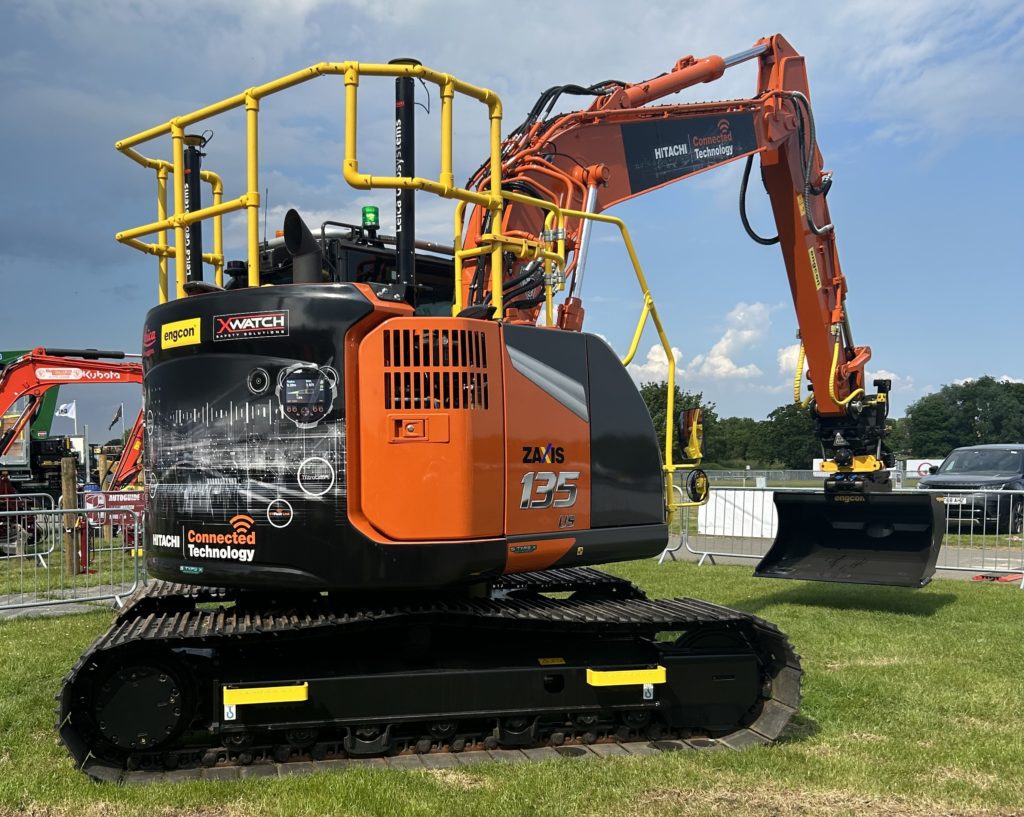 With the innovative 3D avoidance solution in place, safety isn’t just a priority—it’s a guarantee. Engineers can pre-map potential hazards, thereby easing the burden on operators. Some examples of these potential hazards include:
With the innovative 3D avoidance solution in place, safety isn’t just a priority—it’s a guarantee. Engineers can pre-map potential hazards, thereby easing the burden on operators. Some examples of these potential hazards include:
- Height restrictions: should an excavator threaten to collide with overhead obstructions, such as power lines or gantries, immediate zones of avoidance can be established via cabin controls. Activating this system can regulate or even halt the excavator’s hydraulic functions.
- Zone restrictions: to preclude breaches, like environmental or drainage trench disruptions, the excavator’s tracks can be rendered immobile. If it’s quantifiable, it’s avoidable.
- Underground restrictions: tapping into the National Underground Asset Register, the system facilitates controlled and safe excavation around utilities such as power, gas, and water. Dig depth can be limited, safeguarding subterranean assets and ensuring secure excavation practices. If it’s mappable, it’s avoidable.
- Highway restrictions: when operating on bustling highways or public thoroughfares, geospatially defined zones of avoidance or ‘virtual walls’ can be established. Not only does this prevent excavators from encroaching forbidden territories, but also eliminates the need for system resets during forward movement, thereby nullifying potential human errors.
Leaney adds: “Though the 3D avoidance solution is innovative and can greatly enhance safety, it still requires correct input and proper use by the machine operator to ensure its full potential is realised. It’s paramount that it’s programmed and implemented with precision. With the right input from the machine operator, safety becomes more than just a priority — it’s assured. By allowing engineers to pre-map potential hazards, we’re not only providing an advanced tool but also aiming to ease the burden on our operators.”
As UK construction marches into the future, the combined efforts of Leica Geosystems, Xwatch Safety Solutions, and of course, Flannery Plant Hire for pioneering the trials of this system, are ensuring that it’s not just about construction, but construction safely.

